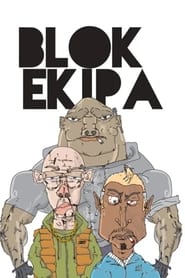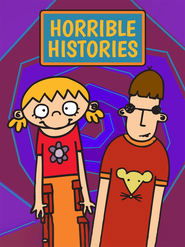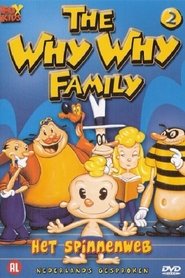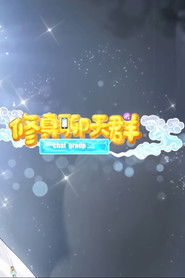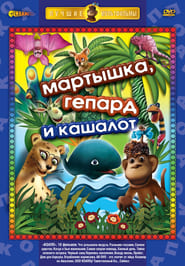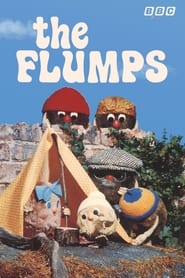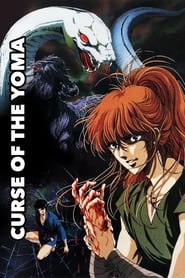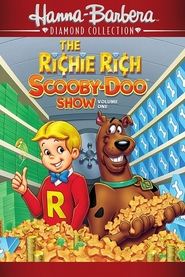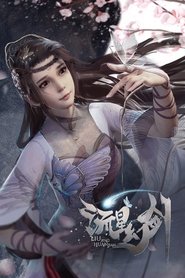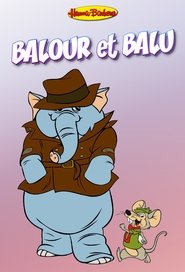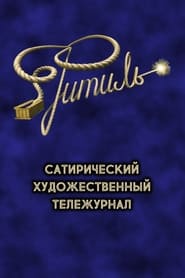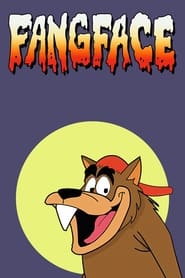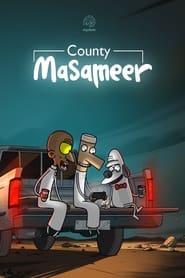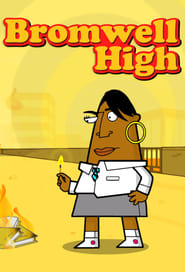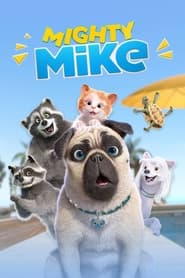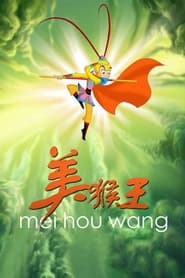Popular Animation TV Series - Page 404
-
Hoodies Squad
2013
-
宇宙人ピピ
1965
宇宙人ピピ
1965
-
Horrible Histories
2001
Horrible Histories
2001
star 7.2Horrible Histories is an animated children's television series based on the Terry Deary book series of the same name. The series ran for 26 episodes between January 1, 2001 and March 25, 2002. The show features the characters Stitch Fleischer, Mo Burrows and Darren Dongle. The show is produced by Mike Young Productions and Scholastic Productions. It is directed by Andrew Young and Gordon Langley. It is produced By Martha Atwater, Tamar Simon Hoffs, Michelle Conway, Paul Cummings, Deborah Forte, Mike Young, Mark Young, Beth Richman and Charlie Stickney, among others. It is animated by Glenn Jason Hanna.It is written by Martha Atwater, Terry Deary, Charlie Stickney, Andrew Young, Gordon Langley, William Forrest Cluverius. It has a running time of 25 minutes. The series was released as a 3-disc DVD box set in 2005. -
The Why Why Family
1996
The Why Why Family
1996
star 7.1The Why Why Family is a French cartoon television series for children, which originally aired in 1996, written by Annabelle Perrichon and François-Emmanuel Porché and produced by Saban Entertainment and CineGroupe. Later, in 1998, the show was broadcast in the United States by Fox. Character design and others are vintage and comedy elements are also included throughout the episodes. -
修真聊天群-动态漫画
2020
修真聊天群-动态漫画
2020
-
KOAPP
1984
KOAPP
1984
star 7.3A series of puppet animated shorts based on the stories of Mailen Konstantinovsky about amazing phenomena in nature and the animal world -
The Flumps
1977
The Flumps
1977
star 7The adventures of a family of cute, furry creatures - The Flumps. Grandpa Flump, Ma and Pa Flump, their eldest son Perkin, daughter Posie and youngest son Pootle. Each episode contains fun songs and a story from the 'Big Book'. -
Blood Reign: Curse of the Yoma
1989
star 6.5To avenge the woman and friends he loved, one lone warrior must seek out and slay his former comrade... but how do you kill someone who is already dead? The solitary ninja must find the answer to that very question, and the ancient secrets of the world's oldest clan of professional assassins are pitted against the forces of evil! From nightmarish battles in which blood-soaked clay literally becomes the feeding ground for the dark creatures that lay in wait beneath the surface of the earth, to flesh-eating stallions and shape-changing spiders. -
The Richie Rich/Scooby-Doo Show and Scrappy Too!
1980
star 9.2The Richie Rich/Scooby-Doo Show and Scrappy Too! is a package show produced by Hanna-Barbera Productions in 1980 for ABC Saturday mornings. The program contained segments from Scooby-Doo and Scrappy-Doo and Richie Rich. The Scooby-Doo and Scrappy-Doo shorts represents the sixth show in which Scooby-Doo appears. This was the only Hanna-Barbera package series for which Scooby-Doo was given second billing and also notable for Richie Rich's debut in animation. -
Undercover Elephant
1977
Undercover Elephant
1977
-
Фитиль (тележурнал)
2004
-
Fangface
1978
Fangface
1978
star 6.3Fangface is a 30-minute Saturday morning cartoon produced by Ruby-Spears Productions for ABC which aired from September 9, 1978 to September 8, 1979. The executive producers were Joe Ruby and Ken Spears. -
DBX
2016
DBX
2016
star 6It's all out carnage as fighters square off in this DEATH BATTLE exhibition. No rules! No analysis! Only bloodshed! -
Masameer County
2021
Masameer County
2021
star 8.8A humorous view of a changing Saudi Arabia, as the Masameer gang venture into a global media war, a long-standing tribal feud, and a health craze gone too far. -
Bromwell High
2005
Bromwell High
2005
star 6.8Set in an under-funded, graffitti-scarred secondary school in South London and follows the exploits of three exceptionally naughty school girls, one maverick Headmaster and a bunch of desperate teachers. Keisha Marie, Latrina and Natella are the first word in streetwise charm. -
Mighty Mike
2019
Mighty Mike
2019
star 6Meet Mike, a pug who’s in love with the neighbour’s dog. Sadly, his plans to win Iris’ heart never seem to work out as trouble-making furry intruders always manage to interfere. -
Monkey King
2010
Monkey King
2010
 Netflix
Netflix
 Amazon Prime Video
Amazon Prime Video
 Apple iTunes
Apple iTunes
 Apple TV Plus
Apple TV Plus
 Disney Plus
Disney Plus
 Google Play Movies
Google Play Movies
 Paramount Plus
Paramount Plus
 Hulu
Hulu
 HBO Max
HBO Max
 YouTube
YouTube
 fuboTV
fuboTV
 Peacock
Peacock
 Peacock Premium
Peacock Premium
 Amazon Video
Amazon Video
 The Roku Channel
The Roku Channel
 AMC+
AMC+
 Kocowa
Kocowa
 Hoopla
Hoopla
 The CW
The CW
 Vudu
Vudu
 Starz
Starz
 Showtime
Showtime
 PBS
PBS
 Pantaflix
Pantaflix
 FXNow
FXNow
 Tubi TV
Tubi TV
 Kanopy
Kanopy
 Comedy Central
Comedy Central
 Crunchyroll
Crunchyroll
 Microsoft Store
Microsoft Store
 Redbox
Redbox
 Sun Nxt
Sun Nxt
 ABC
ABC
 DIRECTV
DIRECTV
 Crackle
Crackle
 Fandor
Fandor
 Plex
Plex
